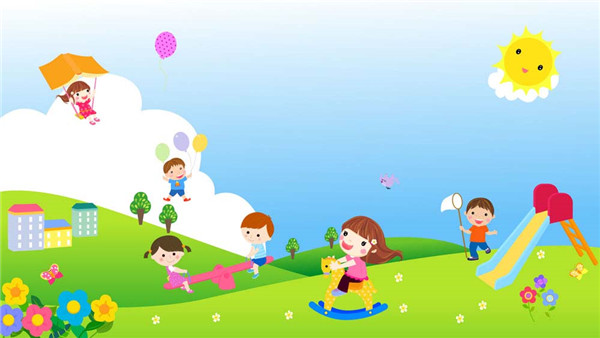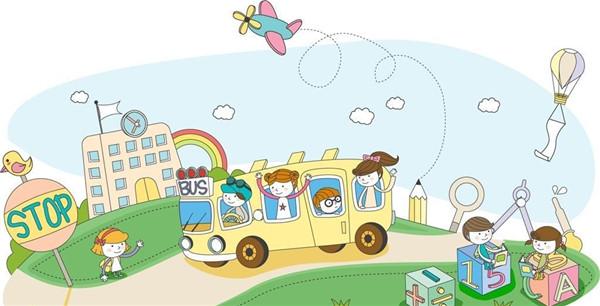
Frequent problems and the construction of "Children Friendly Society" need to be accelerated
Recently, due to some well-known social problems, the topic of children's rights and interests protection has become a hot topic again. As a long-term advocate and practitioner committed to promoting the construction of Children Friendly communities, Zhou Weiyan, President of Beijing Yongzhen public welfare foundation, accepted an exclusive interview with the reporter of Southern Metropolis Daily. The following is the interview record (the original was published in Southern Metropolis Daily, November 12, 2017, 19 Edition)

As early as about ten years ago, the office of the women and children's Working Committee of the State Council advocated "child friendly community" with UNICEF and relevant United Nations agencies, hoping to make a transition from "child friendly community" to "child friendly city" or "child friendly village" and finally reach "child friendly society". Now it seems that all kinds of accidental injuries and accidents of children are also warning us how important and urgent it is to build a "child friendly society".
In response, the Nandu commentator interviewed Zhou Weiyan, director of the office of China children's friendly community promotion program and director of Beijing Yongzhen public welfare foundation. China Children Friendly community promotion plan is a national series of actions jointly initiated by China Community Development Association and China children's foundation under the guidance of the women and children's Working Committee of the State Council. It aims to build "China Children Friendly community ecosystem" through three dimensions of policy friendly, environment-friendly and service friendly, so that all communities with children can become children friendly communities.

Insufficient attention to children's public safety
Nandu commentator (hereinafter referred to as "Nandu"): in many times, especially in summer and winter, we can often see all kinds of children suffering from injuries, such as being run over by cars, being pinched by revolving doors or elevator handrails, etc. At this time, parents and the public generally only reflect on the responsibilities of property, shopping malls and guardians, but no one thinks about how to build a child friendly community environment. In reality, it is a common problem that people and cars mix in the community and children have no activity space. So for a long time, why does society neglect the issue of children friendly environment so much?
Zhou Weiyan: This is a complicated social problem. First of all, parents have no relevant training before they become parents. The first three years after becoming a parent may be busy with early education and taking care of children's daily life. When they encounter colds and fever, they are in a hurry. Then they go to kindergarten, so there is a common misunderstanding in their understanding. Parents do not realize what professional knowledge and skills they need to have as their first guardian.
Although China has a family education association and a special platform system for family education, the work done in this area is far from enough. I think one of the important reasons for this is that family education is not integrated with the community. Because parents have different social identities, only through the link of community and family can parents be linked together. However, the current family education work is out of touch with the community. Although there are also relevant government departments taking the lead, there are few projects that can continuously support parents in a large, systematic and systematic way nationwide. This is also the original intention of our "child friendly" project.
Nandu: as early as about 10 years ago, the office of the women's and children's Working Committee of the State Council advocated "child friendly community" with UNICEF and relevant United Nations agencies, hoping to finally reach "child friendly society". With the establishment of China children's friendly community working committee in 2016, what substantive progress has been made now?
Zhou Weiyan: the concept of child friendly community was first proposed by the women and children's Working Committee of the State Council after the Wenchuan earthquake in 2008. After the disaster, it was found that these children did not have a space and place for activities, so the concept of children friendly community was put forward. It is more like "children's friendly home", or from the perspective of children's rights protection. Subsequently, some meetings of Children Friendly Cities and communities were held in Nanjing and Guangdong, which formed some ideas. Basically, the local women's Federation took the lead in promoting, and a certain space in the community room was taken as the main body to provide minors' activity service space.
In order to promote an operational industry action guide, a feasible and systematic approach is needed to implement and mobilize the participation of all sectors of society. Under the guidance of the women and children's Working Committee of the State Council, China children's foundation and China Community Development Association launched the China children's friendly community promotion plan project to jointly carry out the social work with children as the perspective and community as the link Specifically, how to build a platform, how to connect with the government, public welfare and business, and ensure its sustainable development, so as to finally achieve team, project, output and evaluation.
Nandu: at present, the construction of Children Friendly Community in the city is better than that in the countryside. How can we promote the construction of Children Friendly Community in rural areas? Will it be different from the city?
Zhou Weiyan: many people are questioning why we always insist on doing things in cities. My answer to this is that whether in the city or in the countryside, children and parents need help. There are so many resources in the city that they haven't done well. How can we go to the countryside? China is too big. It must be divided and governed. Most of the public welfare projects, I think, can go first in the countryside, but this is the only thing, I insist on doing from the city first. Imagine that today's first pilot is in Shanghai, and then it will be extended to the whole country. Suppose that the first point is in a poor town and then it will be extended to the whole country. What will be the psychological reaction of the people? As a parent, as a public welfare organization, what do you think?
By integrating the urban experience with the service system of these mature social organizations in the countryside, it is possible to survive and develop in the countryside. But if we graft the rural experience to the city, it will be very difficult. Of course, we also support and encourage that if there are organizations willing to try to establish child friendly communities in rural areas, we can go hand in hand, which will be the best model. But at present, in the case of limited energy and resources, we can only start from the city. Because children friendly community is more about the ecosystem, the input of local government, the operation of social organizations and the participation of commercial institutions. At present, this model may not work in rural areas. Rural areas can have more suitable programs for the current actual environment.

Local community participation is particularly important
Nandu: from the perspective of the community itself, is it possible to play a more important role? For example, there are some owners' committees in which to undertake some promotion work?
Zhou Weiyan: absolutely. In fact, the most easy thing to mobilize in children's community is the parents. They all want their children to get help, which makes them feel that it is meaningful to participate in community activities. They find organizations and teams, and support each other. Therefore, the owners' committee and the residents' committee are actually representatives of the community residents, and the parents are some of the very important members. This is also why we repeatedly insist that the social workers we cultivate in the child friendly community are such a group of people who are grounded, grow up in the community, master certain skills and have the concept of social work.
They have basic social service genes, master certain ways and methods, and with our support, this is the most important force and the largest increase of China's social work talent team. Compared with social workers and even many early teachers, the gene of these social workers is social responsibility and altruistic spirit, with more bottom line integrity.
Nandu: in terms of promotion at the whole social level, the power of business must be a relatively important part. For example, why the pension industry has not been able to develop now is because the commercial capital wants to enter, but does not know how to make money. Will this happen in the future? If we rely solely on society and government, the power is very limited.
Zhou Weiyan: we firmly believe that as long as something has social value, someone will continue to support and participate, because there are many people pursuing social value in a civilized society. If this social value meets the current market demand, it will have commercial value, which will give birth to a corresponding new business sector, which also meets the needs of supply side structural reform. This part may be because the public welfare organizations take action first, and the commercial capital sees and participates in the market value mining.
Compared with the early education market, which is easier to pursue profit, many businesses may not start from here, which is the role of social organizations. When the business model and public welfare model are not clear, social organizations have the responsibility and obligation to figure out this model.
Nandu: the last question is that some work has been done and some problems have arisen in some places for the childcare services for infants aged 0 to 3. What do you think?
Zhou Weiyan: it's very important to teach and support children, especially infants aged 0 - 3. Compared with Europe or Japan, there is still a lot of room for improvement in the 0-3-year-old infant care support system in China and the United States. Shanghai municipal government is at the forefront of the country. The 0-3-year-old community childcare project is a good effort and attempt to do good and practical things for the people, but it is still in its infancy.
From my immature point of view, the fundamental problem is the lack of enough professionals to meet a large number of parents' childcare needs. At present, the gross enrollment rate of kindergartens in China is about 80%. According to a survey, the gap of preschool teachers in China will reach 3 million by 2021. It's very dangerous that the 0-3-year-old field is basically a heterogeneous early childhood education company under one roof.
